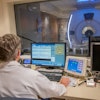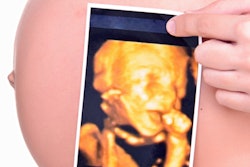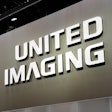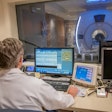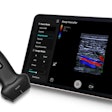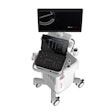Wednesday, November 29 | 10:50 a.m.-11:00 a.m. | SSK02-03 | Room E451A
The potential benefits of deep-learning computer-aided detection (CAD) for breast ultrasound will be outlined in this Wednesday morning presentation by researchers from South Korea.Led by Dr. Ji Soo Choi, PhD, a clinical assistant professor in the department of radiology at Samsung Medical Center in Seoul, the researchers compared the performance of a CAD system based on a deep-learning algorithm with results from four radiologists in differentiating between malignant and benign masses. A second goal was to see if the CAD system could improve the radiologists' results.
The prospective study included ultrasound images of 173 benign masses and 80 malignant lesions in 226 consecutive women. The ultrasound findings were retrospectively analyzed by the CAD system and the four radiologists.
The results of the CAD system were dichotomized (possibly benign versus possibly malignant), and the radiologists independently assessed the BI-RADS final assessments for ultrasound alone and ultrasound with the CAD system results.
"The CAD system based on the deep-learning framework showed higher specificity, accuracy, and positive predictive value than the corresponding values of all radiologists with ultrasound alone," Choi told AuntMinnie.com.
When CAD was combined with ultrasound, three of the four radiologists showed significantly higher values in specificity, accuracy, and positive predictive value than corresponding values with ultrasound alone, with no loss in sensitivity.
"With regard to the management decision change of the radiologists after deep-learning CAD application, correct decision changes were more frequent than incorrect changes for both benign and malignant masses," Choi said. "Deep-learning CAD can improve the radiologists' diagnostic performances in differentiating between malignant and benign masses at breast ultrasound."



